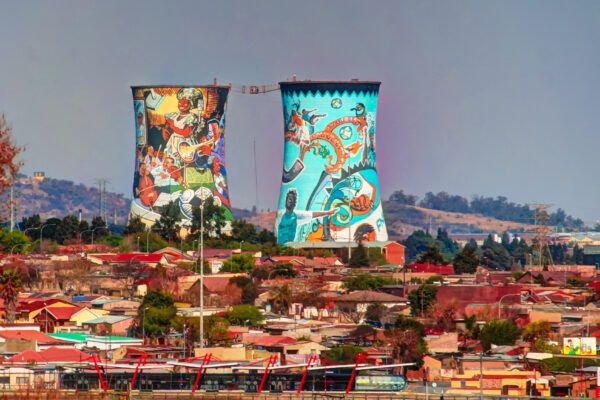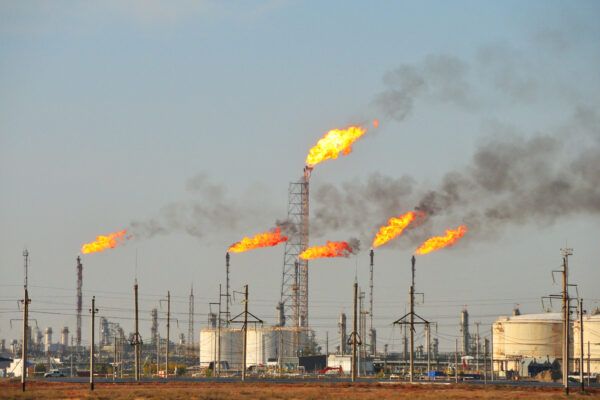Air pollution in South Africa
Air pollution was responsible for 25,800 premature deaths in South Africa in 2019. The country had the fourth highest number of deaths linked to particulate matter pollution (PM2.5) in Africa. Nearly 100% of the population breathes air that exceeds the World Health Organization’s (WHO) guideline levels.
In 2022, a judgement by the South African High Court recognised that the poor air quality in the Highveld Priority Area (HPA) breaches citizens’ constitutional right to an environment that is not harmful to their health and wellbeing.
South Africa is the twelfth largest emitter of greenhouse gas in the world. Most emissions are produced by the electricity sector, the metals industry and the transport sector. The electricity sector’s heavy reliance on fossil fuels is a primary cause of the high levels of nitrous oxide and sulphur dioxide (SO2), making South Africa the largest emitter of harmful SO2 gas associated with asthma and chronic bronchitis on the continent .
One of the country’s hotspots is Johannesburg, the largest city and economic capital, which is projected to attain official megacity status of 10 million by 2030. It is the richest city in Africa in terms of GDP per capita and often described as the economic powerhouse of the continent.
The government’s regulated air quality standards (known as Minimum Emissions Standards or MES) require all regulated industries to meet standards that are not harmful to people and the environment. But the government does not ensure adequate and appropriate compliance with MES, according to reports.
Air quality monitoring stations are not evenly distributed, leaving 40% of the population without access to a station within 25 kilometres. This inaccessibility of data prevents communities and authorities charged with managing environmental health from delivering evidence-based action.
South Africa is rapidly urbanising, like much of Africa. There is an opportunity to support policymakers and businesses to implement policies and solutions to tackle the root causes of air pollution now.
Tackling South Africa’s air pollution crisis
We officially started programming in South Africa in 2023. Our grant making builds on our work in African cities, through our partnership with C40 Cities.
Johannesburg is one of 11 cities to join our recently launched Breathe Cities initiative. The city will benefit from technical support, community engagement, capacity building and additional support from the clean air initiative. If Johannesburg implemented clean air measures from 2023-2040, 2,800 premature deaths could be averted and $640 million (R12 billion) could be saved, according to our report From Pollution to Solution in Africa’s Cities.
We also funded the UrbanBetter Cityzens for Clean Air Campaign , which supported young runners to gather data on air pollution and campaign for clean air measures in Cape Town. We also collaborated wit Climate Visuals to launch a new collection of free photographs to authentically portray the communities most impacted by dirty air in Johannesburg and the Highveld region.
A locally-led and sustainable approach will help us to accelerate systemic change in a continent bearing the brunt of the climate crisis. We are engaging with city and national leaders, community groups and academic institutions to better understand the prevalence and impact of air pollution, and advocate for solutions.
Photo: Roadside fruit and vegetable sellers outside a market Johannesburg, South Africa. Credit: Gulshan Khan/Climate Visuals

